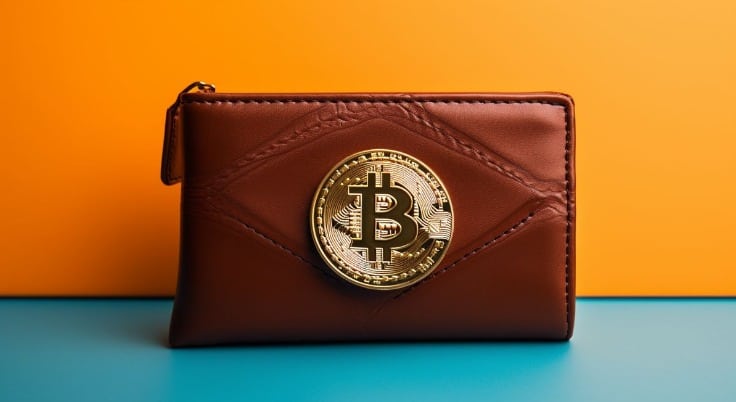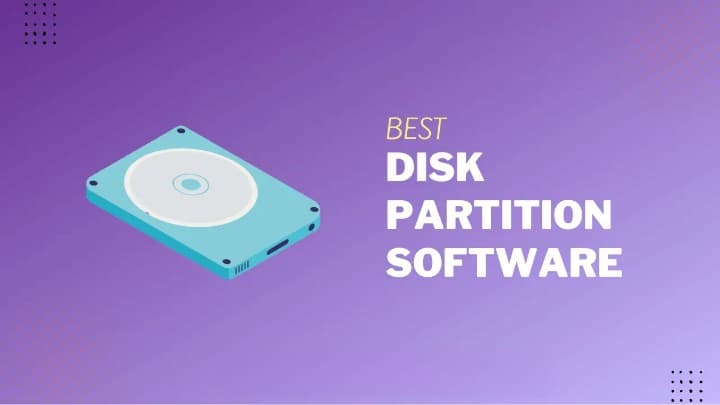
The most popular kind of cryptocurrency wallets recently have been non-custodial wallets. Together, we will investigate and determine which one best fits you.
One type of cryptocurrency wallet that gives you complete control and management over your digital assets is a non-custodial or self-custodial wallet. Consequently, you don’t have to put your valuable NFTs or cryptocurrencies in the hands of platforms or exchanges.
Non-custodial wallets can be broadly classified into two categories:
- Hardware Wallets: These wallets are real hardware that you can use to keep your digital assets offline.
- Software Wallets: With these wallets, you can use apps or software from your computer or mobile devices to store your digital assets.
Let’s now examine the top non-custodial wallets available in the cryptocurrency market, beginning with hardware wallets. Keep checking back!
1) SafePal
For iOS and Android users, SafePal’s software wallet is accessible as a mobile application. You can also add its browser extension to your Firefox, Edge, or Chrome browser.
This wallet allows you to handle and keep track of more than 200,000 cryptocurrencies from more than 100 blockchains. In addition, a variety of payment methods based on fiat money are available for the purchase of NFTs and other cryptocurrency assets.
This non-custodial wallet can also be used to establish connections with well-known DApps in the cryptocurrency industry. For instance, you can purchase your preferred NFTs from the well-known NFT marketplace, OpenSea, by logging into a SafePal wallet.
Above all, none of your data—not even account details, seed phrases, or private keys—is stored by SafePal. Because of this, you have complete control over the possessions that are kept in your wallet.
2) Coinbase Wallet
The official wallet of well-known cryptocurrency exchange Coinbase, which has assets valued at approximately $128 billion, is called Coinbase Wallet. More than 200,000 cryptocurrencies are supported by this software wallet.
This wallet allows you to store and lend cryptocurrency tokens from many different networks. Furthermore, two assets can be exchanged from decentralized exchanges (DEXs) such as Curve, PancakeSwap, Uniswap, and so on.
With this wallet, you can use supported fiat currencies to purchase cryptocurrencies and NFTs. You have the option to pay using debit or credit cards in order to accomplish this.
Additionally, in case you need to retrieve your wallet, you can cloud backup your recovery phrase. Additionally, this wallet alerts you to dubious platforms and web pages.
For iOS and Android users, Coinbase wallets are available as mobile apps. For Chrome users, it also offers a browser plugin.
3) Exodus
The Exodus wallet is accessible to users of desktop, mobile, and web browsers and supports more than 300 crypto assets. Furthermore, you can conduct transactions on more than 50 blockchain networks with this wallet.
With the use of a QR code or smart contract address, you can send and receive cryptocurrency with this wallet. Additionally, this non-custodial wallet includes an integrated swap function for quick and easy cryptocurrency exchanges. Furthermore, purchasing and storing NFTs only requires a few easy steps.
This wallet encrypts both your private keys and transaction data for added security. This encryption technique protects against attacks and wallet hacks.
This wallet also allows you to keep an eye on the value of your cryptocurrency holdings. All you have to do is install Exodus on your iOS, Android, Windows, or Mac computer in order to accomplish this.
4) XDEFI Wallet
Are you trying to find a web browser-specific, effective software wallet? If so, XDEFI Wallet is a fantastic choice. On your PC, you can add the browser extensions for Brave, Edge, Opera, and Chrome.
Thirty-four blockchains are supported by this wallet for NFTs and cryptocurrencies. This secure wallet also allows you to exchange, transact, and store a variety of cryptocurrency assets.
A new XDEFI Wallet was notably simple for me to create. This wallet can be made in two minutes. Just like that!
Above all, your password, seed phrase, and private information are not stored in this wallet. Because of this, this wallet has been deployed by over 200,000 people in the cryptocurrency world.
5) Atomic Wallet
In the cryptocurrency community, Atomic Wallet is well-liked and trusted by over 5 million users. You are able to purchase, stake, and trade thousands of cryptocurrency assets using our non-custodial wallet.
One important area where our non-custodial wallet excels is security. Your private keys, for example, are stored on your device and are completely encrypted.
You can also remain totally anonymous when creating a new Atomic Wallet. Therefore, neither an account nor KYC verification is required.
Devices running Ubuntu, macOS, Windows, Fedora, and Debian can use this wallet’s desktop version. Additionally, it offers iOS and Android mobile applications.
6) Trust Wallet
One of the safest software wallets is Trust Wallet, which has more than 60 million users. Additionally, the biggest cryptocurrency exchange, Binance, owns and operates this wallet.
PancakeSwap and Uniswap, the two greatest decentralized exchanges, are linked with this wallet. You’ll be able to trade cryptocurrencies more quickly, thanks to this connection, right from your wallet.
Additionally, this wallet has a built-in DApp browser. As a result, you can access and utilize well-known DApps within the cryptocurrency ecosystem by using this capability.
Users of iOS, Brave, Chrome, Android, and iOS devices can download the Trust Wallet mobile app or use it as a browser extension. Lastly, you may use passwords, Touch ID, or Face ID to secure your wallet.
7) OKX Wallet
One of the leading cryptocurrency exchanges, OKX, produced the software wallet known as OKX Wallet. Numerous blockchain networks and thousands of coins, including Ethereum (ETH), Bitcoin (BTC), Solana (SOL), and more, are supported by this non-custodial wallet.
You can choose to use a password to secure your cryptocurrency and NFT storage. Furthermore, in the event that your gadget is lost or stolen, you can utilize the seed phrase to get your wallet back.
This wallet can be installed on Windows, macOS, iOS, and Android-compatible devices. For your Chrome or Brave browser, you may also add its browser extension.
This wallet also features a Web3 portfolio dashboard. You may monitor the performance of your asset and the details of cryptocurrency transactions with this function.
8) Ledger Nano X
One well-known hardware wallet from the Ledger line is the Ledger Nano X. You can manage more than 5,500 cryptocurrency tokens with this wallet, including Ethereum (ETH), Solana (SOL), Bitcoin (BTC), and more.
The secure element chip, which is utilized for premium security solutions, is used to protect this wallet. Furthermore, this Ledger wallet has earned an EAL5+ certificate by passing an international security evaluation.
Additionally, you may use the Ledger Live app on the fly to access and manage your wallet. This application works with iOS, Android, Mac, Windows, and Linux.
Moreover, this wallet has USB-C and Bluetooth connectivity. The cost of all these features and security is $149.
9) KeepKey
KeepKey is a stylish and reasonably priced hardware wallet. Additionally, you can keep your NFT collections and 2,500 cryptocurrency holdings in this wallet.
To manage your valuables, this non-custodial wallet also offers a “KeepKey Desktop Application.” This software is available for download on any device that runs Linux, macOS, or Windows.
With PIN and passphrase security, KeepKey Wallet provides customers with even higher levels of security. Additionally, you can select a passphrase length of 12, 18, or 24 words, depending on how long it would be convenient for you.
And finally, micro USB connectivity is included with this little hardware wallet. This KeepKey wallet costs $78 and can be bought from their official website.
10) ELLIPAL Titan
Do you want a hardware wallet that is completely isolated from the internet? If so, ELLIPAL Titan is the greatest option available.
With its remarkable 4-inch HD display, this totally metal-sealed wallet lets you manage and keep an eye on your cryptocurrency holdings. It also facilitates the storing of over 10,000 crypto assets and NFTs.
Additionally, to protect user funds, this wallet employs two-factor authentication (2FA). Furthermore, in the event that someone attempts to tamper with the device, its “Auto-self Destruct” function automatically deletes your confidential information.
In order to guard against online threats, the firmware updates are also entirely offline. At the time of writing, ELLIPAL Titan costs $139.
11) BitBox02
There are two versions of BitBox02, a second-generation hardware wallet. Among these editions are:
- Edition limited to Bitcoin: The primary goal of this wallet is to securely store only Bitcoin (BTC).
- Multi edition: This wallet, on the other hand, is compatible with over 1,500 tokens, including Bitcoin (BTC), Cardano (ADA), and Ethereum (ETH).
The OLED display on this Swiss-made wallet measures 128 by 64 pixels. Additionally, you can use its USB-C adapter to connect it to your PC.
Regarding security, this non-custodial wallet offers an encrypted connection between the device and its software. Additionally, it safeguards the digital assets that are kept by using the dual-chip security approach.
To manage cryptocurrency holdings from your Windows, macOS, Linux, or Android devices, this wallet additionally offers BitBoxApp. The cost of both BitBox02 variants is €115.83.
12) COLDCARD Mk4
Leading Canadian security and hardware manufacturer Coinkite has released the COLDCARD Mk4, their most recent hardware wallet. But the sole uses for this wallet are for storing and sending Bitcoin (BTC).
There are two USB-C ports and a MicroSD slot for connectivity on this wallet. Notably, your Bitcoin transaction has no maximum transaction size.
Furthermore, this gadget has two safe components to improve wallet security. In order to access the device, users must furthermore enter a PIN code as an additional security measure.
Moreover, this wallet has address-sharing and transaction capabilities via NFC. COLDCARD Mk4 is finally available for $157.94 on Coinkite’s official website.
13) SafePal S1
The incredibly lightweight hardware wallet SafePal S1 allows for limitless token transfers between more than 100 blockchains. Furthermore, this wallet does not require Bluetooth, WiFi, or NFC connectivity, making it 100% offline.
It can handle all of your cryptocurrency assets with a 1.3-inch Full-Color Screen. To access your wallet while on the road, you may also install the SafePal App on your iOS or Android mobile devices.
A variety of security sensors, including temperature, light, and frequency sensors, are built into the SafePal S1. Additionally, the dual-chip architecture of this gadget safeguards the user’s cryptocurrency assets and private keys.
Additionally, this wallet contains a self-destruct feature to safeguard your priceless possessions. Notably, all of these amazing features are available for a reasonable $49.99.
14) Trezor Model T
The startup Trezor, which made the first cryptocurrency hardware wallet ever, now offers an improved hardware wallet called the Trezor Model T. Furthermore, they have been in the cryptocurrency business for more than ten years and have a solid reputation.
This non-custodial wallet features USB-C connectivity and a stylish 1.54-inch Color LCD display. It also facilitates the transfer and storage of more than 1,000 cryptocurrency assets.
Interestingly, users have the option to create PIN codes with up to 50 digits. Additionally, you may independently check and validate every transaction to prevent other people from misusing your wallet.
To manage your assets with Windows, Mac OS, Linux, Android, or iOS devices, install their Trezor Suite. Lastly, the Trezor Model has a $219 price tag.
We have discussed the top hardware wallets available for cryptocurrencies. Let’s now discuss the top software wallets. Continue on!
15) MetaMask
One of the top software wallets is MetaMask, which has over 30 million users. You can easily store, stake, and transfer your cryptocurrency tokens using this Ethereum-based wallet.
Furthermore, for security reasons, the wallet’s private keys are only given to the wallet’s owners. Additionally, you can always use a 12-word seed phrase to get your wallet back.
Notably, users of iOS and Android may access MetaMask. This wallet is available for free download from the App Store or Google Play.
This wallet’s browser extension is its most remarkable feature, in my opinion. You may effortlessly connect to several cryptocurrency platforms with this capability without ever leaving your web browser.
A Non-Custodial Wallet: What Is It?
The need for non-custodial wallets increased after the FTX exchange crashed in November 2022. Notably, funds worth more than $1 billion that were kept in FTX’s custodial wallet were lost by users.
Custodial wallets also include fees for withdrawals and transactions. Third-party platforms also have the ability to impose a transaction limit on your assets. For the sake of flexibility and protection, it is advisable to store your cryptocurrency and NFTs in a non-custodial wallet.
Furthermore, only you will have access to the private keys and recovery phase of your wallet. This prevents other people from making purchases using your wallet.
Moreover, non-custodial wallets provide you access to thousands of DApps in the cryptocurrency market. For instance, you can get your token awards right now by connecting the Exodus wallet to the cryptocurrency gaming platform Axie Infinity.
Most significantly, if you want to keep your assets off the internet, you can select a hardware wallet that is non-custodial. Using this technique protects your cryptocurrency investments from online scammers and hackers.
Non-Custodial Wallets FAQs
What distinguishes a custodial wallet from a non-custodial wallet?
The following are the main variations between these wallets:
1) A third party is the owner of custodial wallets. Non-custodial wallets, on the other hand, give users total control over their wallets.
2) You must finish your KYC verification’s before you may build a custodial wallet. By remaining anonymous, on the other hand, you can establish a non-custodial wallet.
3) Novices in the cryptocurrency field can use custodial wallets. Non-custodial wallets, however, are best suited for users who have at least some wallet-using expertise.
4) Should you misplace your custodial wallet password, you can still retrieve your valuables. However, you may permanently lose your valuables if you misplace your recovery phrase or the private keys to your non-custodial wallet.
Is the hardware behind a non-custodial wallet constant?
No, software-based non-custodial wallets are also accessible. Additionally, the majority of software wallets are compatible with iOS, Android, Linux, Windows, and macOS.
When using a non-custodial wallet, you retain ownership of the private keys. Because of this, you have complete control over the possessions that are kept in your wallet.
Owners of non-custodial wallets can also select hardware wallets. Then, their assets are shielded from cyberattacks and hacking.
What kinds of resources are acceptable to keep in a non-custodial wallet?
For storing cryptocurrency assets like coins, tokens, and NFTs, you can utilize a non-custodial wallet.
Last Words
Undoubtedly, non-custodial wallets provide you with more control over your cryptocurrency assets. I suggest software wallets like MetaMask, Trust Wallet, or Atomic Wallet if you use your wallet frequently.
However, it’s advisable to purchase a hardware wallet if you own cryptocurrency valued at hundreds of dollars. Beginners, in particular, can consider the SafePal S1, which only costs about $50.



